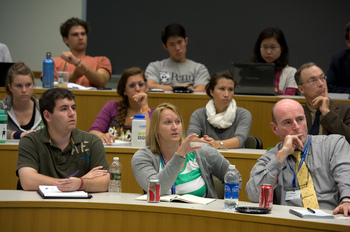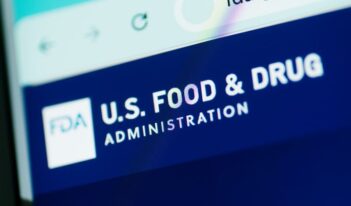
Three seminars will offer critical insights into regulation’s impact on business and society.
As the 2012 election cycle comes to a head in November, coming to terms with the underpinnings of the current U.S. regulatory regime—what, when, how, and why the federal government regulates—promises to be a pivotal to the campaigns of both President Obama and Republican presidential candidate Mitt Romney.
Understanding the risks posed by a given regulatory decision—and the ways in which risk can be regulated—will be critical to advancing the national dialogue over regulation. This fall, the Penn Program on Regulation continues its annual Risk Regulation Seminar Series by offering three seminars that will provide timely insights into three different aspects of risk regulation.
Despite their highly publicized ideological differences over the past two years, Democrats and Republicans in Congress joined together in 2011 to pass the Food Safety Modernization Act (FSMA), signed by President Obama. This new law charges the Food and Drug Administration (FDA) with responsibility for new food safety standards in a regulatory regime focused on prevention. In the first Risk Regulation Seminar of the fall, scheduled for September 18, 2012, Michael R. Taylor, the FDA Deputy Commissioner for Foods, will discuss the possibilities and challenges facing the agency as it works with industry and state and local governments to implement the FSMA and to meet the food safety issues of the twenty-first century. [Please note: The seminar with Deputy Commissioner Taylor regrettably needed to be cancelled at the last minute.]
Appreciating the nuanced relationships between the regulators and those they regulate is fundamental to successful regulations. At the Risk Regulation Seminar on October 23, 2012, Susan S. Silbey, the Leon and Anne Goldberg Professor of Sociology and Anthropology at the Massachusetts Institute of Technology, will share findings from her in-depth research on the ways organizations respond to regulatory commands. Professor Silbey will present a new typology for approaching the interactions between organizations and their regulators.
On November 27, 2012, in the third Risk Regulation Seminar of this term, David Vogel, the Solomon P. Lee Chair in Business Ethics at UC Berkeley’s Haas School of Business, will consider an issue important to whichever candidate wins the election: What is the role of the United States in the global regulatory framework? Professor Vogel perceives, in his own words, that “[g]lobal regulatory leadership has palpably passed from Washington to Brussels” during the last two decades. This seminar will discuss the reasons for this shift in leadership and present a framework for citizens of both the U.S. and the EU to frame their approaches to regulatory policy.
Each Risk Regulation Seminar will be held from 4:30 to 6:00 pm in room F90 of Huntsman Hall at the University of Pennsylvania. Members of the entire Penn community and the public at large are invited to attend.
PPR co-sponsors the seminar series with the Wharton Risk Management & Decision Processes Center as well as the University of Pennsylvania’s Initiative for Global Environmental Leadership.



